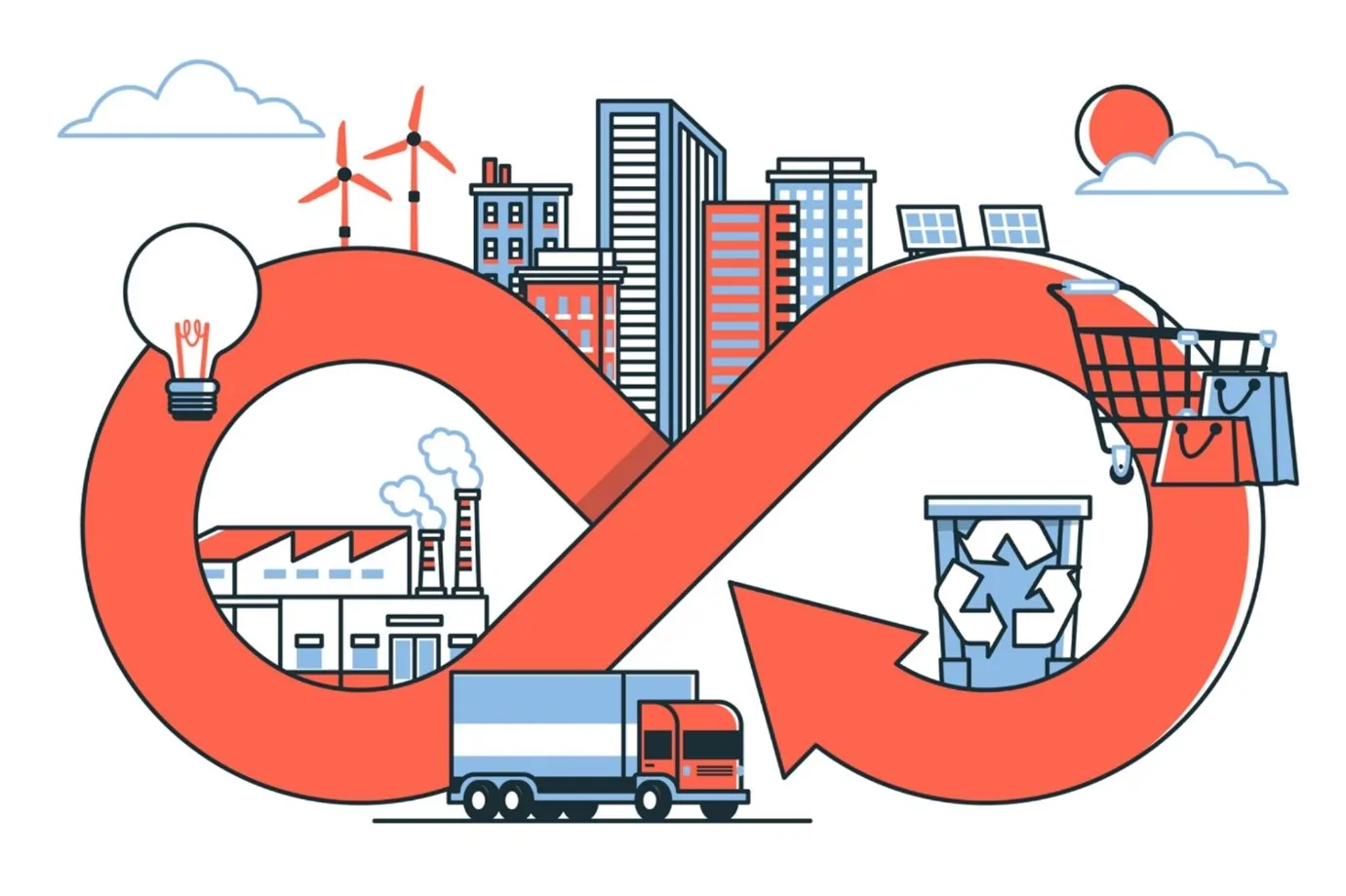In an era where the supply chain must adapt to increasing demands for sustainability, efficiency, and cost reduction, pallet management has become a critical strategic issue. Historically, companies have favored purchasing pallets to maintain direct control over their operations. However, this approach presents limitations when faced with modern challenges such as fluctuating demand, resource optimization, and environmental impact.
Today, solutions are evolving to meet these new expectations. Pallets rental and, more recently, *pallet pooling* (or pallet sharing) provide innovative and effective alternatives. But how do you choose the method that best suits your business?
This article explores three approaches—purchasing, simple rental, and *pallet pooling*—highlighting their advantages, disadvantages, and their contribution to a modern and responsible supply chain. Join us as we dive into the world of pallet management solutions!
Buying Pallets – A Traditional Approach
Perceived Control Over Stock Management
Buying pallets has long been the go-to solution for companies because it offers a sense of complete control over stock management. By owning their pallets, businesses can customize them to meet specific needs, whether it’s dimensions, materials, or requirements tied to their activities. However, this customization comes with additional responsibilities, such as maintenance, storage, and long-term management. Unused pallets often take up valuable space and can quickly become a source of additional costs.
Initial Investment and Hidden Costs
Purchasing pallets requires a significant initial investment, typically justified by the idea of amortizing the cost over several years. However, this approach often hides additional expenses, such as frequent repairs, replacements for damaged or worn pallets, and the management of surplus inventory. These unforeseen costs can rapidly erode the anticipated savings of pallet ownership.
Limited Flexibility to Adapt to Change
One of the main drawbacks of buying pallets is the lack of flexibility. While the pallets are immediately available, the fixed stock cannot easily adapt to changes in activity, such as seasonal demand spikes or expansion into new markets. This rigidity can lead to operational inefficiencies and added costs, especially when companies need to temporarily rent additional pallets to meet occasional needs.
Given these challenges, many companies are turning to alternative models such as pallet rental. While this approach offers certain advantages, it remains an intermediary step before reaching a truly optimized solution for the modern supply chain.
Pallets Rental – A First Step Toward Optimization
Partial Reduction of Logistic Costs
Pallets rental is often seen as an accessible solution for businesses looking to avoid the upfront investment of purchasing pallets. This model eliminates acquisition costs and provides greater flexibility, particularly by allowing companies to adjust the number of rented pallets based on demand. However, recurring rental fees can accumulate over time, requiring careful monitoring to prevent them from surpassing the long-term costs of buying.
Variable Quality Depending on Suppliers
One key advantage of rental lies in the generally good condition of pallets, as suppliers are responsible for maintenance. However, the quality can vary from one provider to another. Some companies encounter issues with damaged pallets or delays in replacement, which can disrupt the supply chain. Choosing a reliable partner is therefore essential to mitigate these risks.
Simplified but Not Fully Optimized Management
By outsourcing responsibilities such as pallet maintenance and replacement, companies can simplify their logistics operations. Rental also reduces the need for dedicated storage space since unused pallets can be returned. However, this model doesn’t fully resolve issues related to return logistics or coordination between various supply chain stakeholders, which can still lead to inefficiencies and limit optimization gains.
While pallet rental offers notable improvements compared to purchasing, it doesn’t fully address the performance and sustainability challenges of the modern supply chain. This is where pallet pooling emerges as an innovative solution for efficient and eco-friendly pallet management.
Pallet Pooling – The Innovative Solution for an Efficient Supply Chain
Complete Optimization of Costs and Resources
Pallet pooling operates on a sharing system where pallets are used by multiple businesses, significantly reducing overall logistics costs. Unlike purchasing or pallets rental, this model eliminates unnecessary investments while maximizing resource utilization. By consolidating transport and return processes, pallet pooling minimizes empty trips, reducing costs and boosting the overall efficiency of the supply chain.
Superior Quality and Durability
With pallet pooling, pallets are consistently maintained to the highest standards. This level of quality is ensured through proactive maintenance by the provider, who promptly replaces or repairs damaged pallets. The result is a reliable, durable solution that meets customer expectations for environmental responsibility.
Intelligent Supply Chain Management
One of the key benefits of pallet pooling lies in the optimized management of pallets through advanced digital tools. Real-time tracking, complete traceability, and data analytics enable businesses to anticipate needs and quickly adjust operations. This intelligent approach ensures maximum flexibility, even during peak periods or when facing fluctuating demand.
Positive Environmental Impact
Pallet pooling aligns perfectly with the principles of a circular economy. By reusing pallets on a large scale and optimizing transport routes, this model significantly reduces companies’ carbon footprints. Additionally, the use of durable materials and centralized resource management enhances the positive ecological impact, meeting the growing demand for sustainability.
Conclusion
Pallet management, often viewed as a minor logistical component, plays a central role in the overall performance of the supply chain. While purchasing and pallets rental have long been the dominant approaches, they are increasingly inadequate in addressing today’s demands for flexibility, sustainability, and cost control.
Pallet pooling stands out as an innovative solution tailored to modern challenges. By sharing resources, ensuring consistent quality, and minimizing environmental impact, this model provides a comprehensive answer for businesses seeking to combine economic performance with ecological responsibility.
Adopting pallet pooling means embracing smart and sustainable supply chain management. It also represents a proactive step aligned with consumer expectations and current environmental imperatives. Are you ready to elevate your pallet management to the next level?


